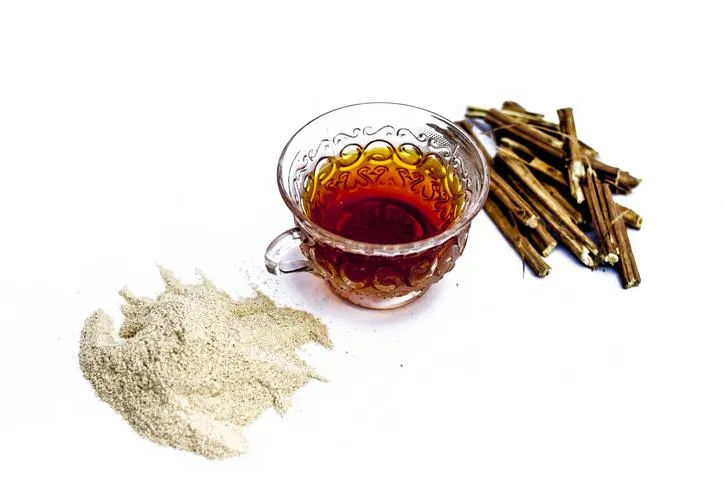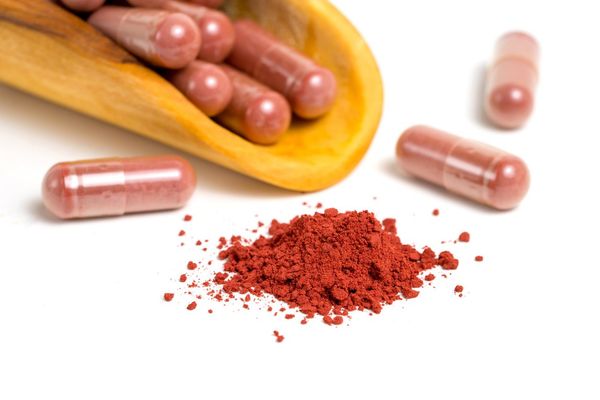Have you seen ashwagandha’s benefits touted on social media? It’s an herbal remedy used for treating symptoms of stress, anxiety and insomnia — but is it worthy of the attention?
We reached out to Melanie Fiorella, M.D., a primary care physician and director of the Center for Integrative Education at University of California San Diego, to get the facts.
What is ashwagandha?
Ashwagandha, also called winter cherry or ashvagandha, is an herb used in traditional Indian Ayurvedic medicine. It’s best known for reducing stress and improving sleep, but it’s also an anti-inflammatory that can lower blood sugar and increase testosterone, among other things.
Fiorella noted that ashwagandha can be especially helpful for those stuck in the “wired and tired” loop — an increasingly common modern problem. “It calms you down, but also gives you energy,” she explained.
So, how does ashwagandha work? The short answer is that we don’t really know. What we do know is that ashwagandha calms the nervous system. While researchers are trying to uncover the specific mechanisms underlying ashwagandha’s uses, there are studies demonstrating its effectiveness.
What can ashwagandha do?
Ashwagandha is renowned for alleviating stress and anxiety. When a person gets stressed, their body releases cortisol, a hormone that can help manage it, but having too much cortisol in your body can have negative effects on your health over the long term. In clinical studies, ashwagandha has been linked to reducing anxiety and lowering cortisol levels, particularly in the morning.
Ashwagandha is also able to help people sleep better. Researchers have observed ashwagandha helping stressed adults as well as adults struggling with non-restorative sleep (NRS) improve their sleep. And more studies report improved insomnia symptoms following ashwagandha use, though larger studies are needed to fully confirm these findings.
Ashwagandha also helps lower blood sugar and fat, making it a great herb for diabetics. One study even found that ashwagandha has comparable success in reducing blood sugar to oral hypoglycemic drugs.
Emerging research is uncovering ashwagandha’s positive effects on the mind and brain as well. One recent study shows that ashwagandha can significantly improve recall memory and general focus after 90 days, and new studies show that ashwagandha has promising applications to help treat cancer, Alzheimer’s and other neurodegenerative diseases.
 iStock.com/mirzamlk
iStock.com/mirzamlk
Who can’t take ashwagandha?
Generally speaking, ashwagandha is safe to use, although everyone should always consult with their healthcare provider (HCP) before beginning any type of supplement, especially people taking blood pressure or thyroid medicine. It’s also important to note that supplements aren’t monitored by the US Food and Drug Administration, so it’s important to make sure you’re getting any supplements from reliable companies.
People who suffer from heartburn, persistent inflammation, joint pain and diarrhea should avoid ashwagandha. And ashwagandha is in the nightshade family, which includes foods like eggplants and tomatoes, so it’s not an option for people with nightshade allergies.
Additionally, pregnant women should stay away from ashwagandha, unless instructed otherwise by their HCP. Since ashwagandha is a stimulating herb, it could induce contractions.
How should you use ashwagandha?
Ashwagandha isn't a one-stop-shop when it comes to treating anxiety or insomnia. For the best results, Fiorella recommends using ashwagandha alongside a holistic health change, which would include reconsidering one’s lifestyle and diet.
“I would recommend it as a tea or tablet formulation, and I recommend taking them twice a day usually — especially in the morning. Then, we can taper up or down and see the effect after about a month,” Fiorella said. She added that for particularly sensitive patients, she prefers using teas because tea powders allow for lower dosages, reducing the severity of any potential negative reactions. “Especially if [people are] feeling stressed with not enough energy, this would be a great herb to add,” Fiorella explained.
Using too much won’t cause any serious side effects — like an overproduction of testosterone — but you would likely experience heartburn quickly. If you overuse ashwagandha, you may also notice irritability or loose stool.
So, is ashwagandha worth the hype?
Well, if you see ashwagandha as a “miracle drug” or a “cure-all” fix, you may have overestimated its usefulness. But, if you see ashwagandha as a multifaceted, complex herbal supplement with some great benefits, you’re right on track.







